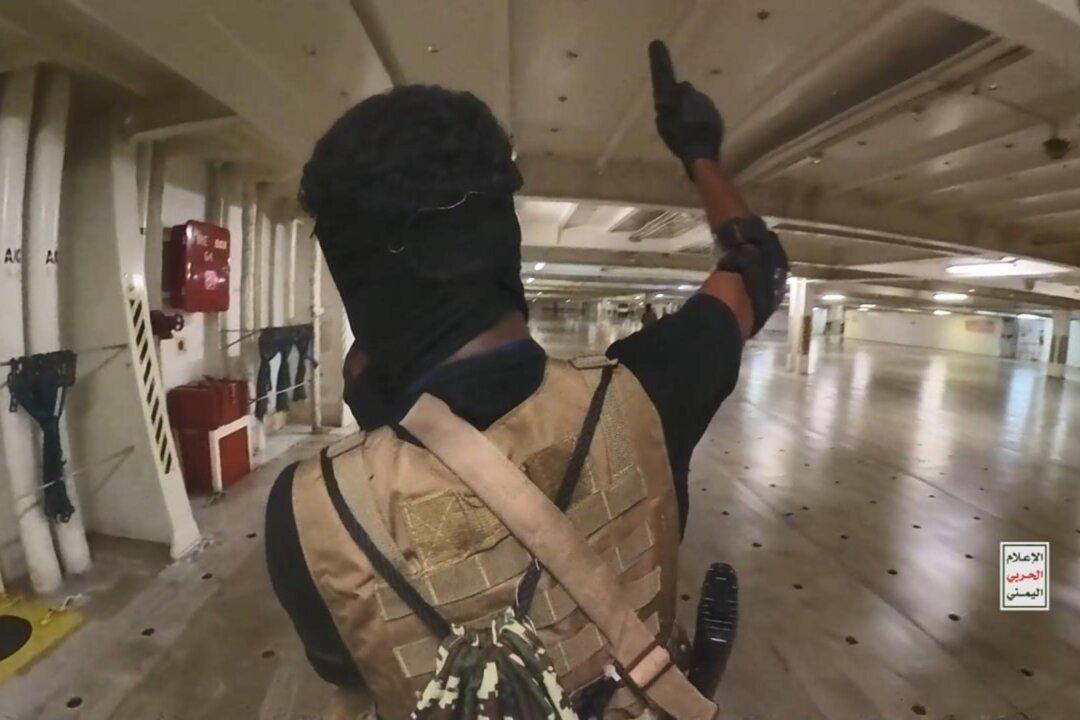The Israeli military is prepared to act against Iranian-backed Houthi rebels’ efforts to disrupt shipping in the Red Sea if other members of the international community won’t intervene, Israeli national security adviser Tzachi Hanegbi said on Dec. 9.
Focusing on recent Houthi attacks on ships in the Red Sea and the Gulf of Aden, Mr. Hanegbi told Israel’s Channel 12 news that Israel might have to act to protect its shipping lanes.





